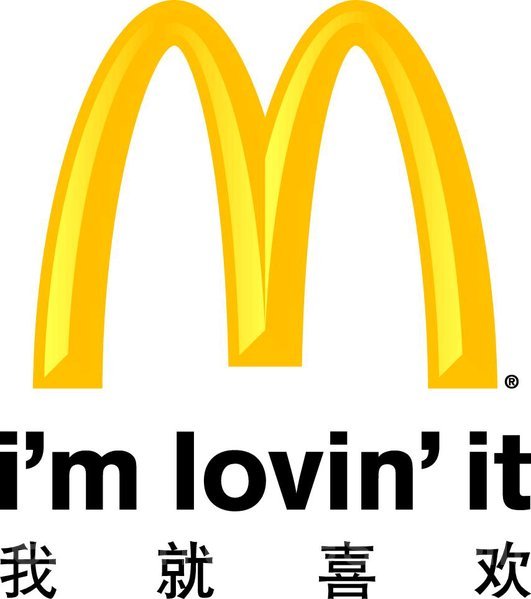Yum Brands Inc.—the parent company that owns KFC, McDonald’s, and Pizza Hut—has faced its share of trials in a China. In 2012, Yum’s earnings took a hit after it was revealed that KFC was using chickens with excessive levels of antibiotics. Since then, as Chinese media does its part to guard the interests of a population with justified concerns about food safety, foreign chains have faced much scrutiny. Over the weekend, Shanghai-based Dragon TV (东方卫视) ran a report [Chinese] showing factory workers at a Yum supplier mixing meat as much as a year past its expiration date with fresh product, and tossing meat picked from the floor into the processor. Food regulators have since suspended operations at the plant, and both KFC and McDonalds issued apologies on their Weibo accounts. The New York Times reports:
The program, broadcast Sunday evening on Dragon TV, showed hidden-camera footage of workers at a meat-processing plant operated by Shanghai Husi Food using out-of-date chicken and beef to make burger patties and chicken products for McDonald’s and KFC. In some cases, workers were shown scooping up meat that had fallen onto the assembly line floor and throwing it back into a processing machine.
In response, the Chinese units of McDonald’s and KFC said in news releases posted from their official Sina Weibo social-media accounts that they had halted use of all products from Shanghai Husi, which is owned by the OSI Group, based in Aurora, Ill.
The Shanghai Food and Drug Administration said in a Sina Weibo post late Sunday that it had suspended production at Shanghai Husi and had begun a joint investigation with the local police into accusations that the processing plant was using out-of-date meat in its products. [Source]
CDT translates the release from McDonald’s Weibo account (@麦当劳):
麦当劳: McDonald’s takes seriously the Dragon TV report on Husi. We have issued the following statement:
Statement
McDonald’s takes seriously the Dragon TV report on Husi. At first notice, we notified all of our national stores. We have immediately stopped using all Husi meat products, and have sealed off all Husi products for safety. At the same time, the company immediately created a group to launch a thorough investigation of Husi and all companies connected to it. We will publicize the results of the investigation as soon as possible. Food safety is our top priority at McDonald’s. In order to guarantee that our customers can enjoy our products without worry, McDonald’s strictly observes national laws and regulations and related standards, and holds our suppliers to the same standards. We have zero tolerance for violations of law and regulation.
McDonald’s (China) Co. Ltd.
July 20, 2014 [Chinese source]
McDonald’s weibo assurance attracted over 4,000 user comments. Following are a few of the top-voted responses, translated by CDT:
王哲理-C: Good thing my family’s poor. We can’t afford to eat your fancy Western fast food. From now on, everyone should give up McDonald’s. If you want to eat something good, make it yourself. Health really is the most important thing.
幸亏我家穷,吃不起你们这么高档的洋快餐。以后大家拒绝食用麦当劳吧,想吃点好吃的东西自己做。健康真的是最重要的。
大苑子-: Those ingredients were from a Chinese supplier. It’s Chinese people hurting themselves.
那些食材还不是中国商家供应的,中国人自己害自己
羊羽叔叔: Get the hell out of China! The food safety bureau should eat McDonald’s and KFC!
滚出中国!食品安全部请把麦当劳和KFC都吃了!
KFC’s statement attracted nearly 4,500 comments. Currently, the most discussed theme (话题) on Weibo is “#McDonald’s, KFC Supplier Exposed#” (#麦当劳肯德基供应商被曝光# )—the hash-tag has been used over 82 million times. The “hottest subject” (热门主题) is “Famous Fast-food Supplier’s Dirty Tricks,” and here are a few of the most popular comments:
银教授: I was buying a sandwich at KFC and the cashier said to me, “Sir, your coupon has expired. You can’t use it.” “Oh,” I replied, “so you know that you can’t use things that are expired?”
在肯德基买汉堡,服务员对我说:“先生,您的优惠卷已过期,不能用了。” “哦?你还知道过期的不能用?”
哑巴: Are my values off? After watching the report, I feel like McDonald’s and KFC are victims, too. The report says McDonald’s often went to Husi for inspection, but that they were duped every time by false accounts. These fast food restaurants don’t have the ability to check every batch of ingredients. They can only select large, “dependable” suppliers. And isn’t it the responsibility of the health inspection department to determine “dependability”? Does Husi also provide expired meat to restaurants in other countries?
是我价值观不对吗?我看完报道,觉得麦当劳、肯德基也是受害者啊。报道中说麦当劳经常去福喜检查原料,但每次都被假账目欺骗。这些快餐店没有检验每一批原料的能力,只能选择“信得过”的大的供货商。而是否“信得过”,应该是卫生监管部门的责任吧?福喜给其他国家的快餐店也供应过期劣质肉吗?
NightMeteora: The main question is whether government inspections are perfunctory.
主要问题还是政府部门监管不力
陈剑殛: What’s your logic? If you ate maggoty pork at a restaurant and the restaurant said “the meat was purchased at a standard market, don’t blame us, blame the government,” would you honestly blame the government?
神马逻辑,你在酒店吃了米猪肉,酒店说我是在正规菜场买的肉,别怪我,怪政府,你就老老实实去告政府了?
Reuters notes a slight fall in Yum and McDonald’s shares, and quotes a young Shanghai diner with little faith in the supply chain:
McDonald’s and Yum are the top two brands by sales in China’s $174 billion fast-food market, according to Euromonitor, but face a challenge as local firms try to tempt cost-conscious diners with healthy, home-grown fare. Both companies said they are investigating the issues highlighted in the report and said that switching suppliers will cause some temporary product shortages.
News of the scare spread quickly to diners negotiating Shanghai’s lunch-hour rush on Monday.
[…] Yet Chinese consumers may already have developed a comparatively thick skin when it comes to food scandals. “Isn’t everywhere like this?” asked student Li Xiaoye, 20, eating a beef burger in a Shanghai McDonald’s outlet. “I’ll keep going because wherever I eat, the issues are all the same.” [Source]








